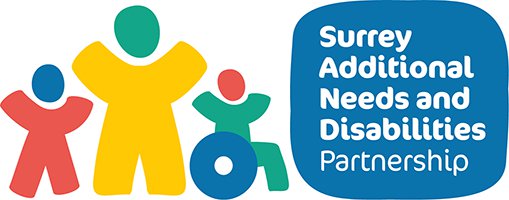Who can you contact for support?
There are a number of services who can offer support if and when you feel you need it.
Support from School or education setting
It is important to communicate any concerns regarding Emotionally Based School Non-Attendance (EBSNA) with your child's school/setting. They can help to find out what's worrying your child and what you and they can do to help. A support plan can be created that could include:
- Home-school meeting to understand the reasons for the non-attendance.
- An allocated named key adult who can maintain daily communication, to include a wellbeing check and ensure work is set, if not in class
- Meeting with the pupil to gain their views around the non-attendance or participation
- Jointly creating a support plan with you, your child and the school/setting.
- Making reasonable adjustments according to your child's needs and the reasons for their non-attendance/participation.
Schools in Surrey can take a Surrey Healthy Schools approach to wellbeing and health and can access a range of resources and services to support your child. Support can include mental health support, counselling, and access to a School Nurse, they can also ask Specialist Teachers for Inclusive Practice (STIPs) to assess your child's difficulties.
Children and Young People with Additional Needs
An underlying Additional Need or Disability can contribute to anxiety levels; this can include Autistic Spectrum Conditions, Attention Deficit Hyperactivity Disorder (ADHD), Sensory Processing Disorder or Dyslexia. These can make school feel like a difficult place to be for a child, even if they do want to attend school. It is worth noting that additional needs includes Social, Emotional or Mental Health Difficulties. These can affect a child's ability to make friendships and cope with strong emotion.
You may therefore also wish to discuss with the school if they feel an assessment of your child for any relevant additional needs is required.
If you need a bit more help
There are times when the challenges of family life become more difficult, and families may need some personalised support for a period of time. Targeted help focuses on the specific needs of the family to help them make positive changes. Requests for support (we used to call these referrals) can be made by all health, education and social care practitioners. Parent/carers can also request support via the Children's Single Point of Access (CSPA).
Helpful resources and services
You may also find the information and support offered by these services is helpful to you. The details of further services can be found on the Local Offer Directory.
| Service | Description |
|---|---|
| Define Fine | A small UK parent led organisation that support families affected by EBSNA. |
| Not Fine In School | A UK based organisation set up to support parents, young people and professionals impacted by EBSNA: They also have a family support group on Facebook. |
| Young Minds | Have a parent's guide to School Anxiety and Refusal. |
| Every Mind Matters- Children's Mental Health | This is important for children of all ages, but in particular if the child is transitioning from one school to another, or to another class, which may make them more anxious about school. |
| SEND Advice Surrey | Offer impartial, confidential, free advice and support to parents/carers of children and young people with special educational needs and/or disabilities. |
| Family Voice Surrey | Champions the needs and rights of SEND families in Surrey: families with children or young adults up to the age of 25 who have special educational needs, chronic illnesses, including mental health conditions, or disabilities. |
| The National Autistic Society Surrey Branch | Is a volunteer-run support group founded by parents to support other parents. Volunteers offer a variety of local support group meetings, talks, parent programmes and activities for families that include autistic children or adults. |
| Are safe spaces for young people to drop into to talk about worries and mental health confidentially. There is also a phone service and virtual workshops operating alongside the face-to-face sessions. The opening times and phone number are listed on their website. They also offer two daytime projects for young people who aren't in school called 'Slow Grow' and 'Forests Skills'. | |
| Children and Family Health Surrey | Have a number of sensory video workshops, on their website. |
| BBC Bitesize | Have a section on School refusal. |
Your Child's GP can offer support which might include a referral to a Paediatrician or Mindworks who provide advice, help and support to children, young people and their families through a wide range of emotional wellbeing and mental health service,
You can also speak to your child's school nurse. The video below describes what a school nurse does and how they can help.
